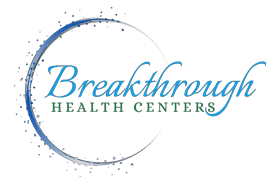Twelve Headache Types and Where You Can Find Natural Relief in Fort Myers FL
TWELVE HEADACHE TYPES AND WHERE YOU CAN FIND NATURAL RELIEF IN Fort Myers FL

If you have ever experienced a headache or a migraine, then you know just how devastating they can be. Not only do they interrupt your social, family, and work activities, but it is frustrating to try to find help that really works. One thing we want to clarify as Fort Myers FL chiropractors is that headaches and migraines are not the same things. A migraine is actually a neurological condition that has a headache as one of its main symptoms. We will look at some more differences below. Here is a list of 12 different headache types.
- Common migraines: Migraines are known for severe throbbing or pounding head pain. Women get them 3 times more often than men. Genetics, brain cell activity, and blood vessel and nerve function may all play a role in the development of migraines. One common migraine trigger is change - this includes hormones, stress, and eating or sleeping patterns.
- Classic migraines: The same as the common but has an aura preceding it - a temporary visual or sensory change.
- Cluster headaches: These are short-lived but extremely painful headaches that usually affect only one side of the head. They can last from 15 minutes to 3 hours. They occur regularly - even a number of times daily - and may be followed by a headache-free period of months or years. They are known for causing tearing or redness in one or both eyes. They are more common in men than in women. Triggers can be alcohol, high altitudes, certain foods, and cigarettes.
- Dental headaches: Some dental-related conditions - bruxism (grinding your teeth at night) and TMJ (bad jaw alignment) for example - can trigger headaches or even facial pain. If you suspect this is the source of your headache, you should speak to your dentist about it.
- Tension headaches: This is the most common type of headache and feels like a constant ache or pressure on both sides of the head or at the back of the head and neck. Stress, anxiety, bad posture, and jaw clenching can be to blame for this headache type. Tension headaches are usually not severe, but they can become chronic. Stress relief and relaxation may help.
- Rebound headaches: These are also called medication overuse headaches and can come about by regularly taking any kind of pain reliever more than twice a week. Tylenol, aspirin, ibuprofen, or triptans (specifically for migraines) can all cause rebound headaches. The only way to recover is to stop taking the offending medication until it leaves your system. Ask your doctor for help.
- Caffeine headaches: Too much or too little caffeine can cause headaches. Missing your daily 2 cups of coffee due to oversleeping on Saturday can give you a headache. Having more than the usual amount can also bring about a headache.
- Early morning headaches: Those with sleep apnea often get early morning headaches. Rebound headaches may occur in the morning as the medication is taken previously is leaving the body.
- Sinus headaches: These headaches are often over-diagnosed. People with migraines may think they are sinus headaches. One study proved that 88% of people who thought they had a sinus headache actually had a migraine. Similar symptoms - nasal congestion, sinus pressure, and watery eyes - happen in both types. An actual sinus headache will have a nasal discharge that is green or tinged with red. A sinus headache should not be light or sound sensitive or cause nausea.
- Ice cream headaches: Also called a brain freeze, these headaches are painful but not dangerous. People who have migraines are more prone to getting them. Their medical name is sphenopalatine ganglion neuralgia and they are thought to happen when the cold sensation of ice cream or a cold drink hits the roof of the mouth, causing an increase in blood flow to the brain's arteries.
- Menstrual headaches: The sudden drop in estrogen just before a woman's period can sometimes trigger migraines. They often happen 3 days before or 2 days after she starts her period. Sometimes women get PMS-related headaches that are not migraines. These come on about 6 days before a period and are accompanied by moodiness, cramping, and other PMS symptoms.
- Chronic daily headaches: If you have headaches for more than 15 days out of a month's time for more than three months, they are considered chronic. This could be due to overuse of pain medication, an injury to the head or neck, or, rarely, meningitis or tumors. If no cause is determined, it may be due to the body's pain signals being distorted. What can cause this?
CORRECTING UPPER CERVICAL MISALIGNMENTS TO HELP ALLEVIATE HEADACHES IN Fort Myers FL
A lot of time and money has been spent researching how to help people who suffer from the above-mentioned headaches. The scientific field is beginning to understand more and more about headaches and migraines. The term neurovascular is being used in regards to headaches. It relates to blood flow, brain function, and how the head is situated on the neck. A link has been noted between a misalignment in the bones of the upper neck - particularly the C1 and C2 vertebrae - and the onset of migraines and headaches. A misalignment of this type puts the brain stem under pressure and can cause it to work improperly. This can lead to headaches.
Here at Breakthrough Health Center - Fort Myers, we use a method that is both gentle and precise to help these bones move back into place without the need for popping or cracking the spine. This leads to a more natural, longer-lasting adjustment. Once corrected, the body can begin to heal itself, and headaches often improve or go away completely.




